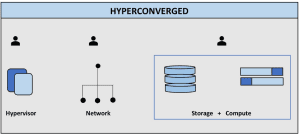As the workplace has continued to adapt and evolve over recent years, changes have been observed in workflow and processes and in attitudes to work from employees and employers alike. One of the biggest shifts in attitude has been regarding work-life balance, even as more workers take the opportunity to work remotely or adopt hybrid working arrangements.
One of the bigger signifiers of this attitude shift can be found in survey data regarding absences from work due to sickness. Before the coronavirus pandemic, sickness absence rates were at an all-time low, a figure partly attributed to pressures felt by employees to continue working. But following the pandemic, a renewed sense of caution regarding illness and the spreading of disease – coupled with positive and accommodating changes to employee treatment in the workplace – has led to a healthier approach to sickness and absence.
Reversal of Stigma
According to the results of a survey conducted by professional business card producers, Instantprint, 30% of UK employees feel no pressure regarding working through sickness or forgoing sick days to attend the office. This figure is double that of pre-pandemic numbers, suggesting a positive workplace shift away from absence-related hostility – or removing the ‘sick-day stigma’ that has many sacrificing their health in the name of work. It also illustrates a general shift in the workplace atmosphere as employers adopt more understanding HR practices to improve employee wellbeing.
Common Causes for Absence
The survey, conducted with 1000 UK workers across a number of industries, also revealed the most common reasons given for sickness-related workplace absences in the UK. Between 2020 and 2021, the top two most common causes for absence were ‘flu’ and ‘cold/cough,’ with up to 40% of respondents calling in for related symptoms – a predictable result, owing to the growing prevalence of COVID-19 during the time of review.
A notable result of the survey is the percentage of respondents that took time for ‘mental health’ reasons, with 11% of those surveyed taking a leave of absence for mental health. With employers taking a more hands-on approach to employee physical and mental health, the stigma surrounding workplace-related stress and clinical mental illness has been reduced. Therefore, encouraging employees to take sick leave where they need it, no matter the symptoms. This increase in mental health awareness has come in time for the remote working revolution, where working from home can introduce new pressures regarding working hours and project load.
The Bottom Line
Employee health is a serious matter and always has been. The recent changes in attitude and action on behalf of employers and employees represent a positive trend in the workplace, enabling workers to prioritize their health – and crucially, without bringing on further stress regarding their work.
Featured Photo by Pavel Danilyuk from Pexels




